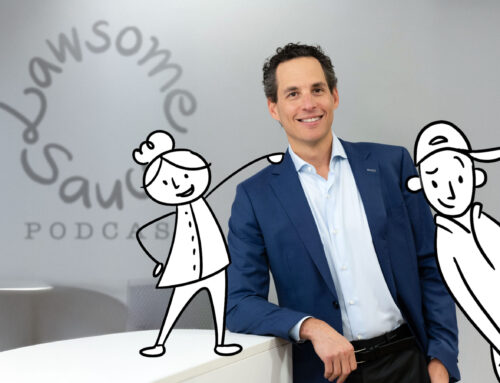Daily Business Review | Raychel Lean
February 24, 2020
The #MeToo movement has attempted change the fabric of society in a radical way, according to legal ethics expert Jan Jacobowitz, who said it’s resulted in a “sort of drastic time period” where the pendulum has swung very far in one direction.
The criminal case against movie mogul Harvey Weinstein has resulted in two guilty verdicts of criminal sexual act and third-degree rape.
But it also offers professionals an important—albeit extreme—glimpse into the ”new norm” that’s emerged in the workplace since #MeToo, a social movement that gained global traction after a New York Times investigation into alleged harassment by Weinstein.
The movement gave women around the world a public platform to voice allegations of misconduct against powerful men. As a result, 2020 is a perilous time for men in the workplace.
University of Miami law professor Jan Jacobowitz specializes in legal ethics and says things can get messier still when one steps away from what were serious criminal allegations against Weinstein involving literal assault or rape, to look at more subjective, nuanced types of sexual harassment.
What might constitute a compliment for one woman might feel like sexual harassment to another, for example.
“In the spectrum of offensive comments, it’s a very broad spectrum, and when you superimpose the spectrum of individual sensitivity, the range of it, that’s where I think those don’t line up,” Jacobowitz said. “As a society we’re attempting to define a new norm, where we put those spectrums on top of one another to create a new norm of what’s generally acceptable and generally unacceptable.”
Not unlike women burning their bras and other items to protest a Miss America beauty pageant, or men burning their draft cards to protest the Vietnam War, the #MeToo movement, in Jacobowitz’s view, has attempted change the fabric of society in a radical way. And it’s resulted in a “sort of drastic time period.”
“Whenever there’s a change in society, in order for there to be social change, the pendulum swings very far to whether it’s the right or the left,” Jacobowitz said.
With this shift, and the extreme and high-profile cases like Weinstein’s that have accompanied it, has come what Jacobowitz describes as necessary but “unfortunate victims” of the pendulum swing, who weren’t sexual predators in a criminal sense, but who were publicly vilified over allegations of inappropriate or tone-deaf comments.
“The pendulum swung very far, so there probably are people being caught up in this who could otherwise be rehabilitated without suffering the loss of career or their job, because of Harvey Weinstein or Bill Cosby or some of the huge names, and on the flip side some of the very high -profile women who have come forward,” Jacobowitz said. “I think that it’s a very sticky wicket for men right now, and they need to be careful how they come across. … The pendulum will swing back toward center, where there is, maybe, a more reasoned approach to not throwing everyone in the same pot and meting out justice in a way that may feel more equitable to some.”
Jacobowitz says that’s why it’s all the more important for workplaces to be devoid of comments about people’s appearances, even if it’s a well-meaning compliment.
“There’s really no need or no purpose served in making comments like that,” Jacobowitz said. “I think you can create a collegial workplace in other ways. You could bring in popcorn on Thursdays, you could talk about the Miami Heat, you could talk about the Miami City ballet. If you want to have conversations to create a camaraderie, it really doesn’t need to be personal.”
Say nothing
Commercial litigator Don Hayden of Mark Migdal & Hayden in Miami is working on a case involving allegations of sexual harassment from a female graduate student against a tenured university professor.
He said the #MeToo movement has prompted him to think twice before his interactions with subordinates, and before sending emails or texts, in an effort to ensure nothing gets lost or wrongly interpreted in the printed word.
“It’s never a good idea to be a lout or cheeky in the workplace with subordinates. Off-color jokes and the like always will fall flat when they’re taken out of context,” Hayden said. “It’s not what you intended, it’s what was communicated and how the other person felt or feels about your activity.”
As for office romances between supervisors and subordinates? Never a good idea, the way Hayden sees it, since what might start as consensual could become unclear down the line.
“It’s difficult to unwind a sexual relationship within a work relationship once it’s started, and say what’s consensual and what’s not,” he said.
[…]




